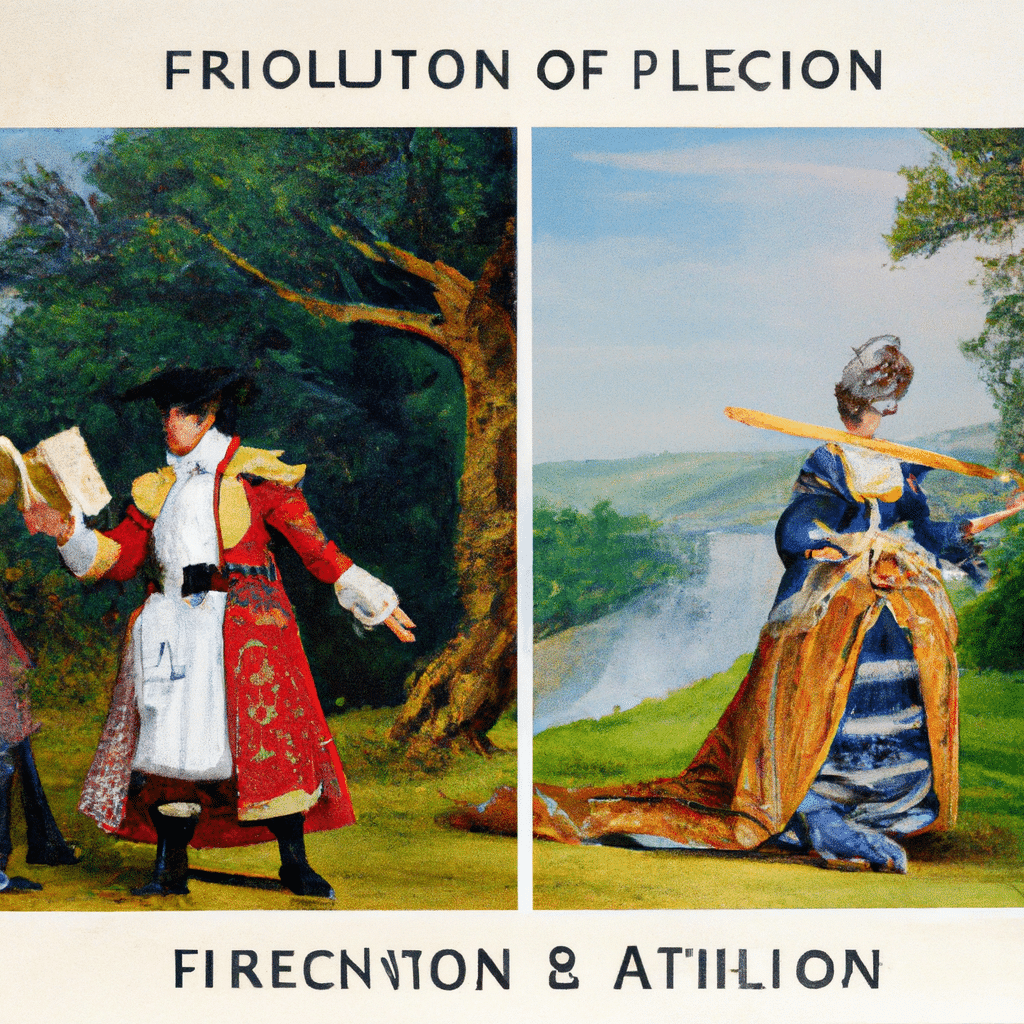
In the vast realm of literature, two genres stand out as the most captivating and thought-provoking: historical fiction and non-fiction. Both genres transport readers to different time periods and offer unique perspectives on historical events. However, there are often misconceptions surrounding these genres, leading to confusion among readers. In this article, we will debunk common myths and misconceptions about historical fiction and non-fiction, exploring their differences, similarities, and the impact they have on readers.
Myth 1: Historical Fiction is Purely Imaginary
One prevalent myth about historical fiction is that it is entirely fabricated, lacking any basis in reality. However, this is far from the truth. While historical fiction may incorporate fictional characters and events, it is firmly rooted in historical facts. Authors meticulously research the time period, ensuring accuracy in the portrayal of historical events, settings, and cultural nuances. Through their vivid storytelling, historical fiction authors breathe life into the past, providing readers with a captivating blend of fact and fiction.
Myth 2: Non-Fiction is Always Objective
Non-fiction, on the other hand, is often regarded as purely objective and factual. However, it is essential to recognize that non-fiction can also be influenced by the author’s perspective and bias. Despite the diligent research and reliance on factual information, authors may interpret events differently or emphasize certain aspects based on their own perspectives. Therefore, it is crucial for readers to approach non-fiction with a critical mindset, considering multiple sources and viewpoints to gain a comprehensive understanding of the subject matter.
Myth 3: Historical Fiction is Less Educational
Some argue that historical fiction is less educational compared to non-fiction, as it incorporates fictional elements. However, historical fiction serves as a powerful tool for education and learning. By immersing readers in the historical context, it brings the past to life in a way that non-fiction sometimes struggles to achieve. Through the eyes of fictional characters, readers gain a deeper understanding of the emotional and human aspects of historical events. Historical fiction can spark curiosity and encourage further exploration of the time period, making it a valuable educational resource.
Myth 4: Non-Fiction is Dull and Dry
Contrary to popular belief, non-fiction does not have to be dull and dry. While some non-fiction books may adopt a more academic tone, many authors strive to engage readers through storytelling techniques and captivating narratives. These authors skillfully weave facts and anecdotes, ensuring that non-fiction works are as compelling and accessible as their fictional counterparts. By presenting historical events in an engaging manner, non-fiction books can captivate readers and leave a lasting impact.
Myth 5: Historical Fiction Sacrifices Accuracy for Entertainment
One misconception surrounding historical fiction is that authors sacrifice accuracy for the sake of entertainment. However, reputable historical fiction authors prioritize historical accuracy while crafting their narratives. They diligently research the time period, ensuring that the events, settings, and cultural details align with historical facts. Although fictional elements may be introduced for storytelling purposes, the overall accuracy and authenticity of the historical context are paramount.
Myth 6: Non-Fiction is Always Boring for Fiction Lovers
It is often assumed that fiction lovers would find non-fiction books uninteresting. However, this is not always the case. Non-fiction offers a vast range of topics and genres that can cater to various interests. Whether it is biographies, memoirs, or historical accounts, non-fiction can provide fascinating insights into real-life stories and events. Fiction lovers might be pleasantly surprised by the compelling narratives and thought-provoking ideas found within the pages of non-fiction books.
Myth 7: Historical Fiction and Non-Fiction Cannot Coexist
Lastly, there is a misconception that historical fiction and non-fiction are mutually exclusive and cannot coexist harmoniously. However, these genres often complement each other, offering readers different perspectives and experiences. Historical fiction can pique readers’ curiosity, prompting them to delve deeper into the facts and events of a particular time period through non-fiction works. Conversely, non-fiction can inspire historical fiction authors to explore untold stories and lesser-known characters, breathing life into forgotten eras.
Conclusion
In conclusion, historical fiction and non-fiction are both valuable genres that transport readers to different times and places. While historical fiction brings history to life through fictional characters and narratives, non-fiction provides factual insights into the past. Debunking common myths and misconceptions surrounding these genres allows us to appreciate their unique qualities and the impact they have on readers. So, whether you find yourself immersed in the world of historical fiction or delving into the pages of non-fiction, embrace the enriching experiences they offer and let them deepen your understanding of history.



